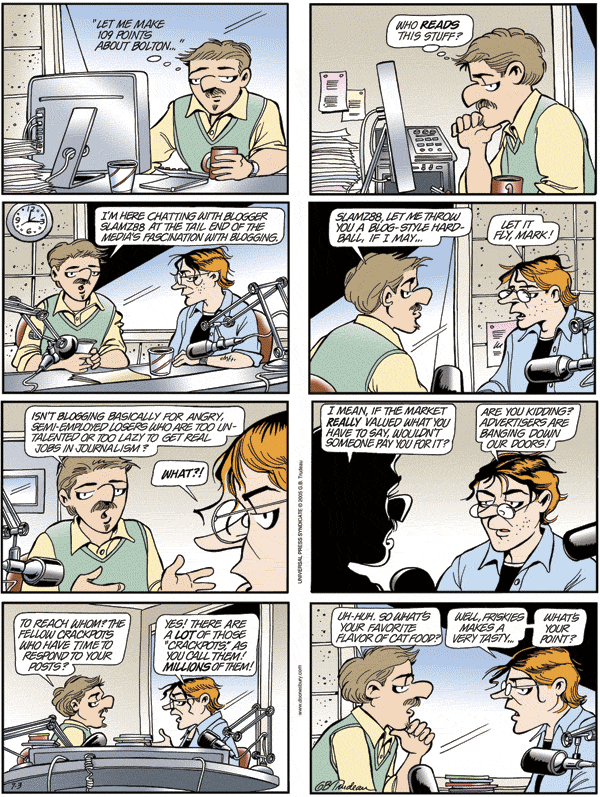Roughly 13% of federal taxes are collected from Albertans. Therefore, 13% of the cost of equalization is born by Albertans. Quebecers pay about 20% of federal taxes, and therefore fund 20% of the equalization. The difference, of course, is that the Quebec government gets an equalization cheque and Alberta doesn't. (This isn't accidental--that's the way the program was set up to run.)
This table attempt to sketch out in a rough way where the net benefits are. Each province's share of the tax burden is assumed to be their share of the cost of equalization.
| % of tax burden* | Program cost (mil.) | Benefit (mil.) 2003/4 | Net benefit (mil.) | pop. (2001) | net benefit per capita | |
| Nfld | 1.05% | $113.00 | $766 | $653.00 | 512,930 | $1,273.08 |
| PEI | 0.28% | $30.60 | $232 | $201.40 | 135,294 | $1,488.61 |
| NS | 2.27% | $247.20 | $1130 | $882.80 | 908,007 | $972.24 |
| NB | 1.68% | $183.10 | $1142 | $958.90 | 729,498 | $1,314.47 |
| Que | 20.70% | $2,256.00 | $3764 | $1,508.00 | 7,237,470 | $208.36 |
| ON | 44.24% | $4,822.50 | 0 | $(4,822.50) | 11,410,046 | $(422.65) |
| MN | 2.85% | $310.80 | $1336 | $1,025.20 | 1,119,583 | $915.70 |
| SK | 2.42% | $263.00 | 0 | $(263.00) | 978,933 | $(268.66) |
| AB | 12.33% | $1,343.00 | 0 | $(1,343.00) | 2,974,807 | $(451.46) |
| BC | 11.75% | $1,280.90 | $590 | $(690.90) | 3,907,738 | $(176.80) |
| Yuk | 0.08% | $8.80 | 0 | $(8.80) | 29,900 | $(294.31) |
| NWT | 0.14% | $15.60 | 0 | $(15.60) | 40,000 | $(390.00) |
| Nun | 0.06% | $6.60 | 0 | $(6.60) | 27,400 | $(240.88) |
The pattern is one that is fairly well-known. Ontario makes the largest contribution to equalization, which is perfectly appropriate given that it is almost half the country's economy; Alberta makes a large contribution given its size (13% of the cost, though having only 10% of the country's population); BC and Saskatchewan pay in more than they get out. Quebec receives the largest cheque, but on a per capita net basis the sums are quite modest.
*Note: the share of taxes is an old number and reflects only federal income taxes. So this table is useful only for illustrative purposes. If you know more recent or exact figures, by all means mention them and I'll update the table.
Update. Andrew Spicer conducted a similar exercise here and got roughly similar results. (I suspect that his numbers are better than mine.)






